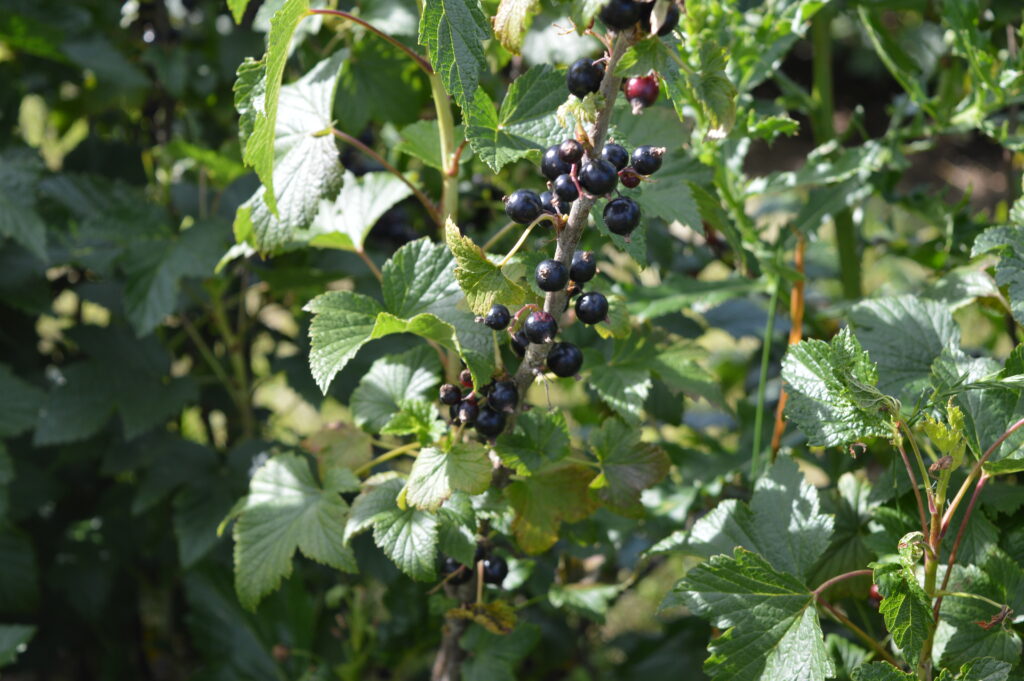Our world leading blackcurrant breeding and research programme, is helping farmers grow more resilient and sustainable blackcurrant crops as part of a fruitful partnership with Suntory Beverage and Food GB&I, makers of the popular Ribena blackcurrant drink.
Suntory Beverage and Food GB&I (SBF GB&I), a division of one of the world’s largest beverage and food companies, has invested more than £2 million in its research programme with James Hutton Ltd, the commercial research and consultancy arm of the James Hutton Institute.
The institute has been conducting research for Ribena since the 1980s and its scientists have bred blackcurrants for even longer, developing a huge repository of expertise in blackcurrants since 1956. Almost half of blackcurrants grown around the world and virtually all British-grown blackcurrants, are from varieties bred by the institute.
Did you know…
Almost half of blackcurrants grown around the world and virtually all British-grown blackcurrants, are from varieties bred by the institute.
Research for Ribena has endured through different ownership of the brand through the decades, involving scientists often working with generations of blackcurrant farming families across Britain , says Dr Jonathan Sape, head of James Hutton Ltd.
“Our Ribena work is one of most enduring commercial and scientific partnerships and one of the largest crop study programmes,” says Snape.
His colleague Lesley Beaton, commercialisation and licensing Manager for JHL, has been involved in the Ribena programme for several years. “We have a very dynamic partnership with Suntory Beverage & Food GB&I. We focus on early-stage breeding and liaise with the team on which varieties are released for commercial growing,” Beaton says.
Farmers across the UK produce around 10,000 tonnes of blackcurrants for Ribena each year, roughly 90% of Britain’s blackcurrant crop. “The drink uses a blend of blackcurrant varieties and virtually 100% of the varieties in the blend were bred by us,” Snape says.
Ribena was developed in the 1930s by Dr Vernon Charley, a scientist at Bristol University who recognised the health benefits of a drink made from blackcurrants which naturally contain antioxidants and high levels of vitamin C, which are essential for good health. During WWII the British government issued free Ribena to children and expectant mothers to help maintain vitamin C levels at a time when other natural sources of vitamin C such as citrus fruits, were extremely scarce.
Today, brand owner SBF GB&I and the institute’s scientists collaborate across the entire blackcurrant supply chain from JHL’s labs to farms and factories across the UK to ensure that the blackcurrants contained in Ribena are bred and farmed in a sustainable way, and can pass stringent taste tests.
Blackcurrants need cold winters to thrive however climate change has resulted in increasingly warm British winters. That presents challenges for farmers whose livelihood depends on consistently producing high quality harvests, and for SBF GB&I which relies on British blackcurrants to make Ribena.
“The impact of climate change is a huge threat, particularly to growers in the south of England which has the warmest winters,” says Snape. “Blackcurrants need cold weather in effect to reset their internal clocks to allow the buds to break evenly in spring, after a warm winter we see very uneven bud break which leads to uneven flowering and ripening, which for a crop which is harvested once by machine is a big problem”.
The Ribena research programme developed a practical solution by breeding a new variety of blackcurrant called Ben Lawers which can thrive in warmer winters, helping farmers overcome a major sustainability challenge. The first commercial harvest of the new variety took place in 2020, marking the Ribena programme’s latest major success.
Breeding varieties that help farmers adapt to climate change is one of many breakthroughs achieved by JHL scientists. Others include breeding varieties which produce a higher fruit yield, as well as varieties with improved resistance to common pests affecting blackcurrants such as gall mite.
“We were the first to develop molecular markers for breeding,” says Snape. “That creates a short cut to understanding the characteristics of each variety – such as which is resistant to one particular pest for example and which is not.”
“That reduces risk for the grower and ultimately for the partner reliant on the crop and it greatly increases the efficiency of the process., “ says Snape.
The current research focus relates to varieties that require less winter chilling and which show resistance to key pests and diseases. They are assessed over many years in glasshouse, field and semi commercial conditions. Once a new variety is selected it gets named – all JHL blackcurrants are named after Scottish mountains with the Pre-fix Ben and protected under plant variety rights (effectively a plant patent). Then JHL scientists raise young plants in a glasshouse and test for viruses, protecting the health of the ‘mother plant’ and nurturing ‘daughter plants’ which are later bulked up by propagators to be grown commercially by farmers contracted to SBF GB&I.
JHL is playing a critical role in helping farmers to develop a more sustainable livelihood and helping SBF GB&I protect its supply chain in order to keep producing one of Britain’s most popular drinks.

Inspired by the Scottish landscape
All our blackcurrants are named after Scottish mountains with the pre-fix Ben and protected under plant variety rights.
We have developed blackcurrant varieties exclusively for Lucozade Ribena Suntory, including Ben Dorain, Ben Klibreck, Ben Lawers, Ben Starav and Ben Vane.
The impact of climate change is a huge threat, particularly to growers in the south of England which has the warmest winters.
Dr Jonathan Snape,
Head of James Hutton Ltd.
